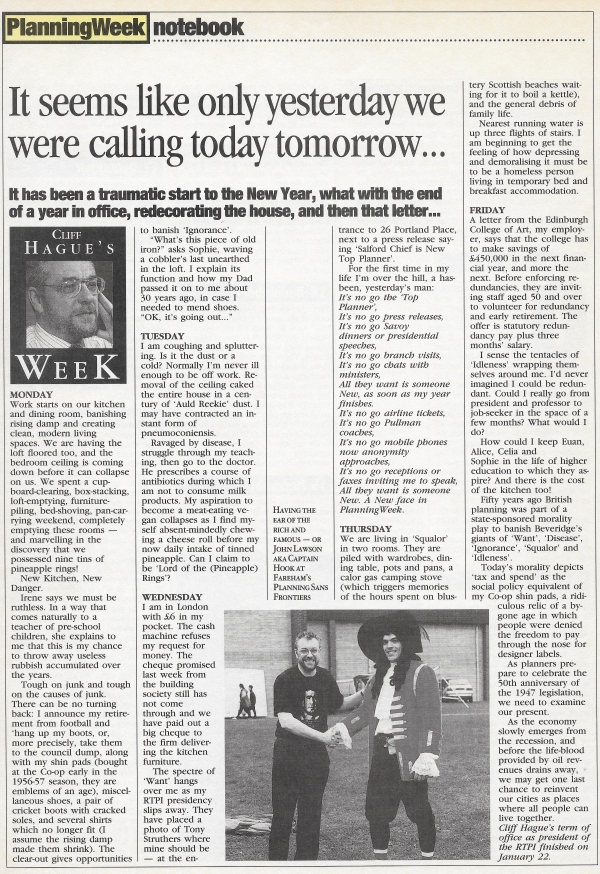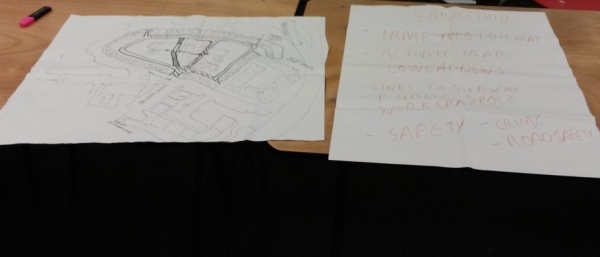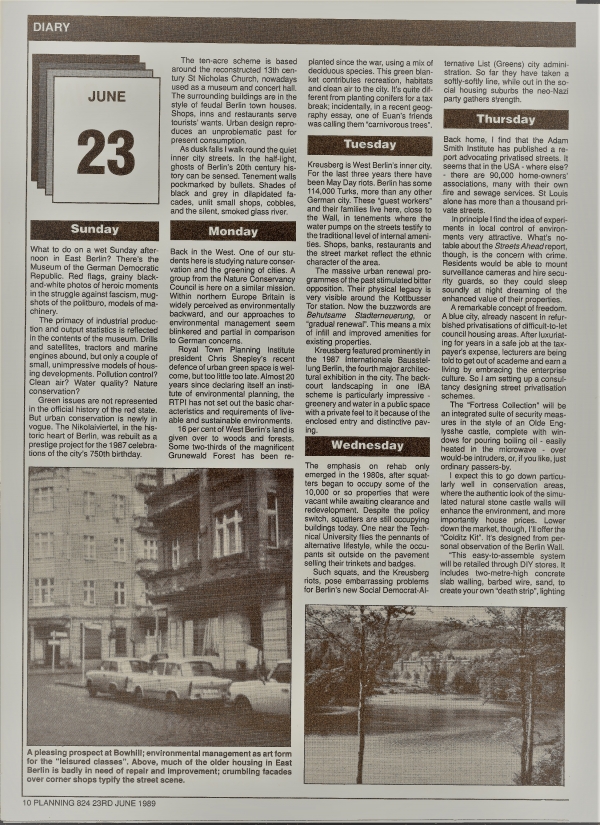Mindblown: a blog about philosophy.
-

Lord of the (Pineapple) Rings
In a week when my term of office as President of the Royal Town Planning Institute came to a close, I also faced being made redundant. This largely inconsequential article that I wrote in 1997 is redeemed by the photo of me wearing my Eric Cantona T-shirt while meeting a pirate. It also provides some…
-

Kes Revisited – The welfare state and community in the late 1960s
Ken Loach’s film, Kes, was released in 1969. What does it tell us about lifen a coalfield community – then and now? Ken Loach’s film Kes will be familiar to many, since it was one of the most acclaimed British films of the 1960s and has continued to get airings ever since. It tells the…
-

Blow for Smart Cities as Toronto project is scrapped
The recent decision by Alphabet to scrap its ambitious waterfront regeneration project in Toronto is a landmark in the short history of smart cities. Sidewalk Labs‘ Toronto Waterfront project was a flagship for the Smart Cities movement. Early in May 2020 it was abandoned. The germination, contestation and demise of the scheme will be mulled…
-

Participative Planning post-Covid: Lessons from Scotland’s charettes
Dr.Michael Kordas provides insights into the use of charettes for participation in planning – before and after Covid 19. Dr. Michael Kordas provides this guest blog that raises important questions about how the changes forced by the Covid 19 pandemic might impact on participatory methods like charettes. My doctoral research investigated the impact of the…
-

Berlin June 1989 (Part 2)
The second and final part of my Diary in Planning from June 1989. You can read the first part by clicking here. This was first published in Planning on 23 June 1989. It is reproduced here by kind permission of the Editor. Check out other reprints from my columns in Planning in the ‚Flashbacks‘ pages of my website.
-

Berlin, June 1989
A chance to read my monthly Diary in Planning from June 1989, which starts in Berlin just months before the Berlin Wall came down. It also looks at the Adam Smith Institute’s ideas for privatising streets – an idea that might be revived post-Covid19? Of course there have been many gated communities developed in the meantime. Click here to read…
-

Force Majeure movie review: Explosions in a landscape
The film Force Majeure focuses on the tensions within a marriage, but it also depicts the tensions between people and the natural environment. The original Swedish title of Ruben Östlund’s internationally acclaimed film Force Majeure is Turist, which is „Tourist“. The pivotal drama in the film is the moment early on when an avalanche of snow threatens to bury the winter…
-
Covid 19 in rapidly urbanising countries
UN Habitat has published its response to the serious problems posed by the pandemic in Africa, Asia-Pacific and Latin America and the Arabic countries. Over 95% of Covid 19 cases are in urban areas. There are 1 billion people living in informal settlements, and 2.4 billion people lack adequate access to safe water and sanitation.…
-

City Planning and the Public Health Crisis in Palestine
City planning in the Palestinian-controlled areas has yielded poor results when it comes to unexpected challenges, including the recent outbreak of COVID-19, the novel coronavirus, says local expert Dr. Ahmad El-Atrash. In this Guest Blog, Dr. Ahmad El-Atrash (pictured above) from the UN-Habitat office in Ramallah, reflects on the situation in Palestine. Palestinian cities and communities…
-
Life as a Planner in 1973
Back in 2006 I wrote an article in Planning, which recalled my working environment in 1973. Here it is. In 2006 Life on Mars was showing on TV, re-imagining the world of policing in the sexist 1970s where bad fashion choices were all the rage. My recreation of that early 1970s period in planning history, whenI was first…
Hast du irgendwelche Buchempfehlungen?